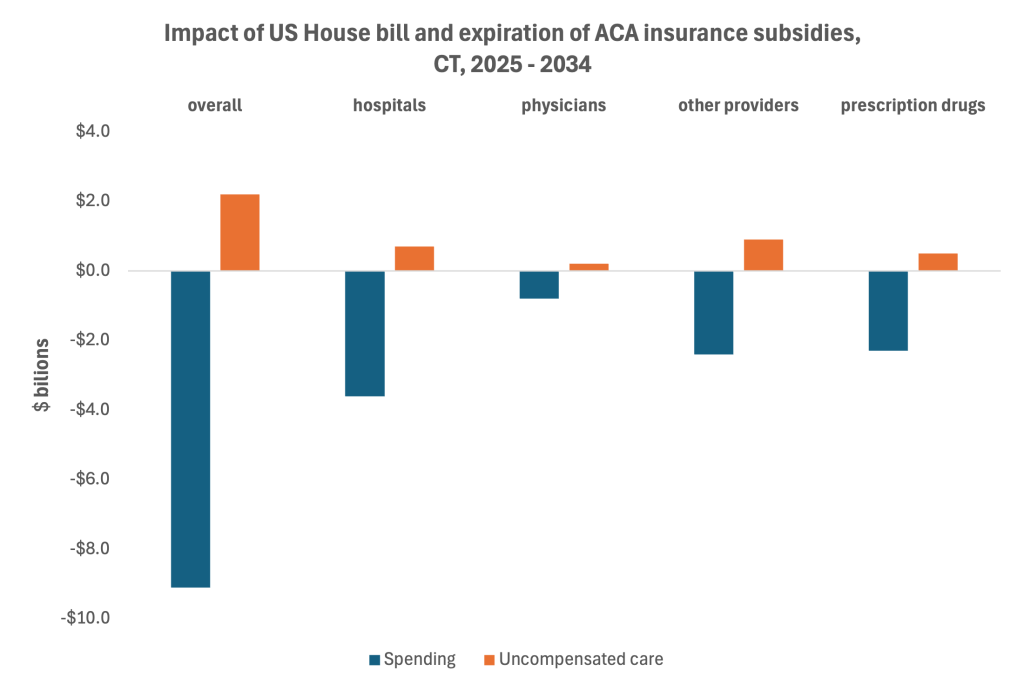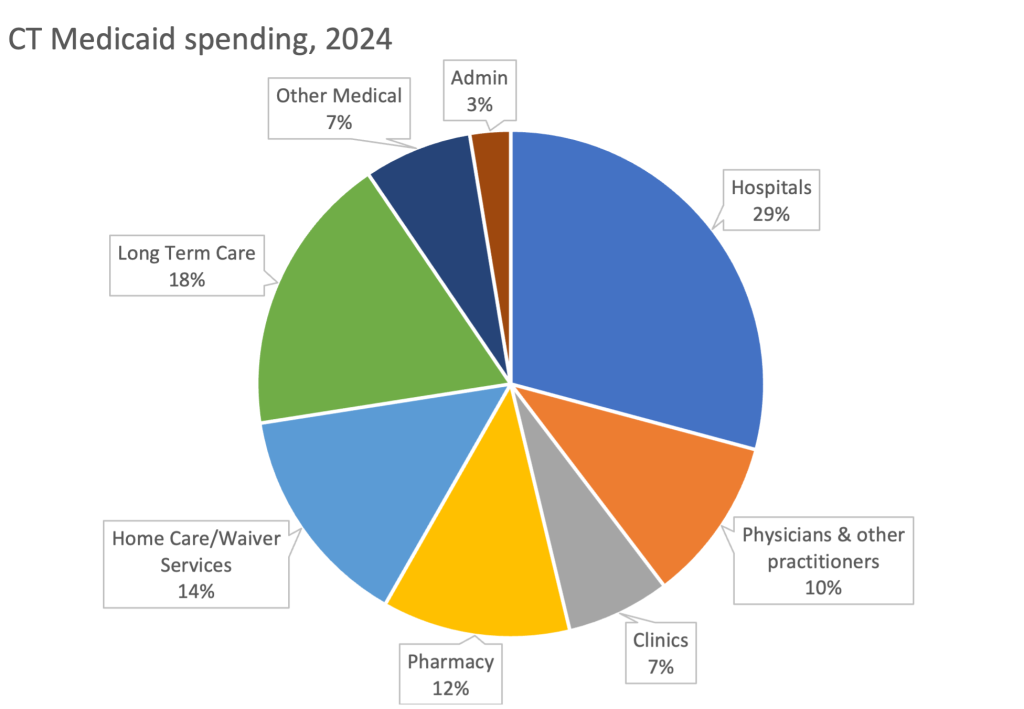drugs
Private Insurance chapter in CT Healthcare Explained updated
We’ve updated the Private Insurance chapter of CT Healthcare Explained. The update was prompted by new numbers and new topics, including level-funded plans, Connecticut private insurance prices compared to Medicare, and wide hospital price variation. CT Healthcare Explained is our explainer website cutting through the complexities of our state’s healthcare system. Like the other 17…
Read MoreMedicare chapter in CT Healthcare Explained updated
We’ve made another massive update to CT Healthcare Explained – this time to the Medicare chapter. The update was prompted by new numbers and new research, especially about Medicare Advantage plans. We also included the changes to the program required by the budget bill passed by Congress and the Trump administration this month. CT Healthcare…
Read MoreMedicaid chapter in CT Healthcare Explained updated
We’ve made a massive update to the Medicaid chapter of CT Healthcare Explained. The update was prompted by new numbers and updated performance. We also included the significant changes to the program required by the budget bill passed by Congress and the Trump administration this month. We also included a description of Connecticut’s decision not…
Read MoreAnalysis: CT is a National Leader in Fight to Control Drug Costs
This year, Connecticut passed meaningful laws to control stubbornly-high prescription drug prices. According to the Office of Health Strategy, prescription drugs are among the top three drivers of Connecticut’s unaffordable healthcare costs, across Medicaid, Medicare, and private insurance. States don’t have the powerful levers that federal policymakers could access, and federal law can be a…
Read MoreCT drops five notches in health system performance ranking
Connecticut ranks 11th among states according to the Commonwealth Fund’s 2025 Scorecard on State Health System Performance report. While we’re still ahead of 39 states, we fell from 6th place in the 2023 report. The problems touch the cost of care, no surprise, but also utilization/access and quality. The cost of care gets a lot…
Read MoreFederal changes are coming into view – it’s not good, but there is hope
It’s hard to keep up with the updates about the potential impact of Congressional healthcare proposals. Just when there is a glimmer of light, it gets worse. I won’t blame anyone for not reading any further. For those of us who can’t look away, here are two new analyses of note and two glimmers of…
Read MoreCT healthcare costs grew faster than ever in 2023, but Medicaid bucked the trend
Download the analysis updated 7/22/2025 This month, the Office of Health Strategy (OHS) released their three annual Healthcare Benchmark reports. The main event, the Cost Growth Benchmark report finds that healthcare costs rose by 7.8% in 2023, well above the 2.9% benchmark set by an old OHS committee based on economic indicators. This is the…
Read MoreNutrition initiative could save $908 million per year in CT healthcare spending – Potential Medicaid LTC spending relief option
Medically tailored meals (MTMs) could save Connecticut $6,299 net per year per person, by far the highest savings among states, according to a new study published in Health Affairs. This research offers an important option to address Connecticut Medicaid long-term care costs that not only saves money, but also improves health. MTMs are nutritious, prepared…
Read MoreJust a sample of Trump healthcare news
I’ve been avoiding writing about the impact of the Trump administration’s policies on healthcare. It’s overwhelming and it changes daily. But waiting for it to settle out isn’t working. It’s time to dig in. Reporters, in Connecticut and nationally, are doing an exceptional job of documenting this as it happens. Here are a small sample…
Read MoreHUSKY still very efficient but drugs are driving up costs
Read the full report Like other states, Connecticut Medicaid per member costs are beginning to increase after dropping during COVID. However, Connecticut’s rate trend remains better than other states. Since switching from managed care organizations in 2012 to focus on care management, Connecticut Medicaid spending stabilized while enrollment expanded significantly, according to the state’s latest…
Read More








